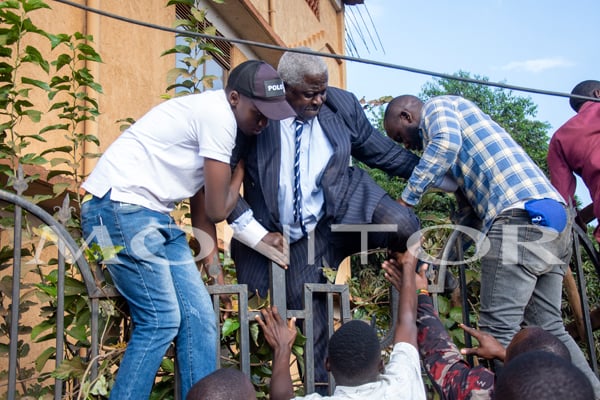Prime
Decoding FDC’s slow death

Author: Phillip Matogo. PHOTO/FILE
What you need to know:
- FDC’s transformation (its beginning, middle and end) should serve as a bellwether.
When it comes to a classic storyline in books or film, the old adage that “every story has a beginning, middle, and end” holds fast.
Many a writer will tell you that this structure splits a story’s components into three distinct acts: Setup, confrontation, and resolution. It’s clear that this three-act structure reflects, essentially, the hero’s journey.
In narratology and comparative mythology, the hero’s journey, or the monomyth, involves a hero who goes on an adventure, is victorious in a decisive crisis, and comes home changed or transformed. This is the trajectory of the story of the Forum for Democratic Change (FDC).
Formerly Uganda’s strongest Opposition party and arguably the ruling National Resistance Movement’s (NRM) most redoubtable political foe, FDC is reportedly experiencing a split that could adversely transform it.
The party that expected to survive the departure from its leadership of its most electable member, Dr Kizza Besigye, finds itself caught between two stools.
In one corner, secretary general Nathan Nandala Mafabi narrows his eyes into lines that should not be crossed.
In the other corner, the gung-ho Ibrahim Ssemujju Nganda, as ever, seems to be spoiling for a battle royal.
All the while, “Museveni’s money” seems to be cashing more checks on both their activities than can be banked on to ensure either faction’s survival.
Indeed, the transformation of FDC from Teflon candidate to Manchurian candidate seems imminent, if not already complete.
A Teflon candidate describes an entity that is able to evade or seems impervious to blame, criticism, culpability, or responsibility for negative actions or behaviour.
Then, a Manchurian candidate is an entity, for purposes of this discussion, being used as a puppet by an enemy power. The term is “commonly used to indicate disloyalty or corruption, whether intentional or unintentional”.
This distinction being made, one can see the lingering death of a party which has failed to survive Besigye. For Besigye’s political death parallels the party’s own demise.
This will be true for the ruling party, too. After President Museveni, there will be no NRM.
In the same vein, after Milton Obote, the Uganda Peoples Congress (UPC) all but vanished.
The National Unity Platform (NUP) will also leave the dancefloor when Bobi Wine ultimately grooves into the proverbial sunset.
Only the Democratic Party (DP) has had a future beyond its founders, well, until the NRM actively drew first blood by infiltrating it.
However, it is not yet dead. It is simply in a coma, and will have its Lazarus dawn; so to speak.
DP’s survival seems to be grounded in the fact that it is a party of principles instead of a party of men.
This is why all its leaders have never been strongmen. They have been mild-mannered apparatchiks of middling means who have, by their retiring personalities, not come to personify the party.
Hence, the party has come to characterise its members as ‘middle Uganda’ compromisers.
Alternately, strongmen such as Milton Obote, Museveni and Besigye have come to personify their parties and so their parties could not survive them. As for NUP, it is Bobi Wine’s celebrity which turned it into a farce to reckon with.
Thence, the FDC’s transformation (its beginning, middle and end) should serve as a bellwether, as the Americans call it, of how political institutions, including political parties, cannot survive outside the personalisation of their leadership.
Thus, Uganda’s institutional stamina will only be elongated through each Ugandan’s efforts towards a collective responsibility to nation-building and not the singular visions of our leaders.
After all, Uganda is a sum of her parts, as long as it remains a State instead of a nation.
Phillip Matogo is a professional copywriter
[email protected]




